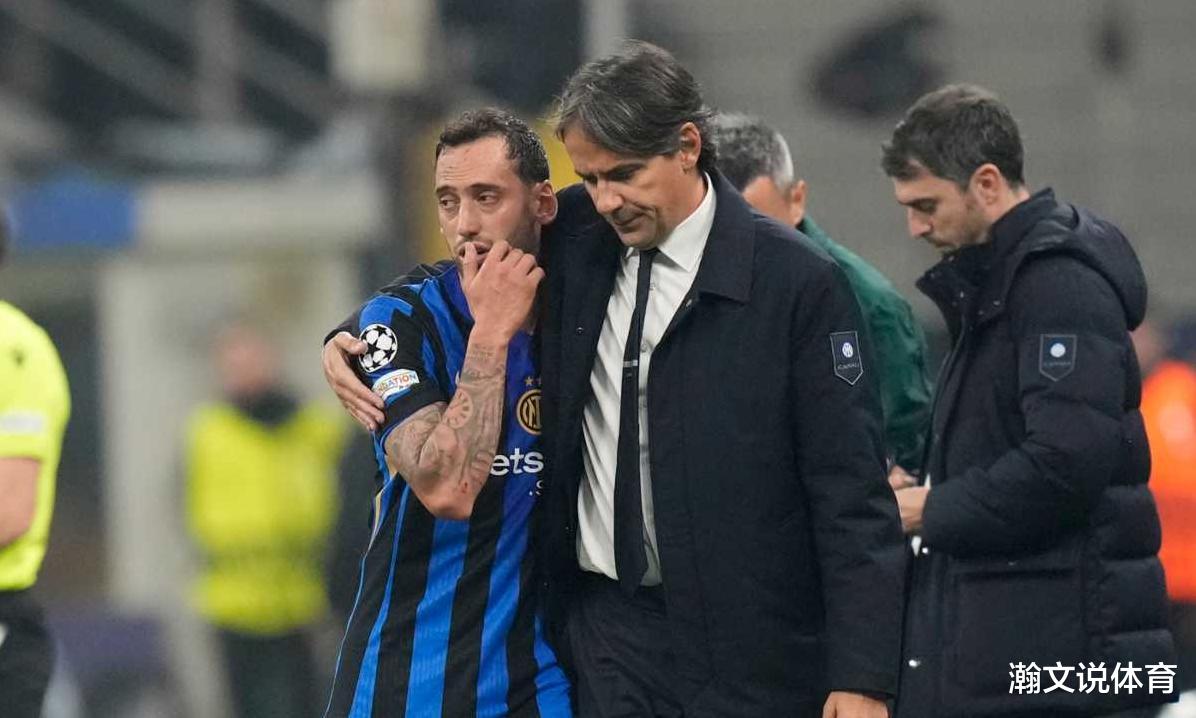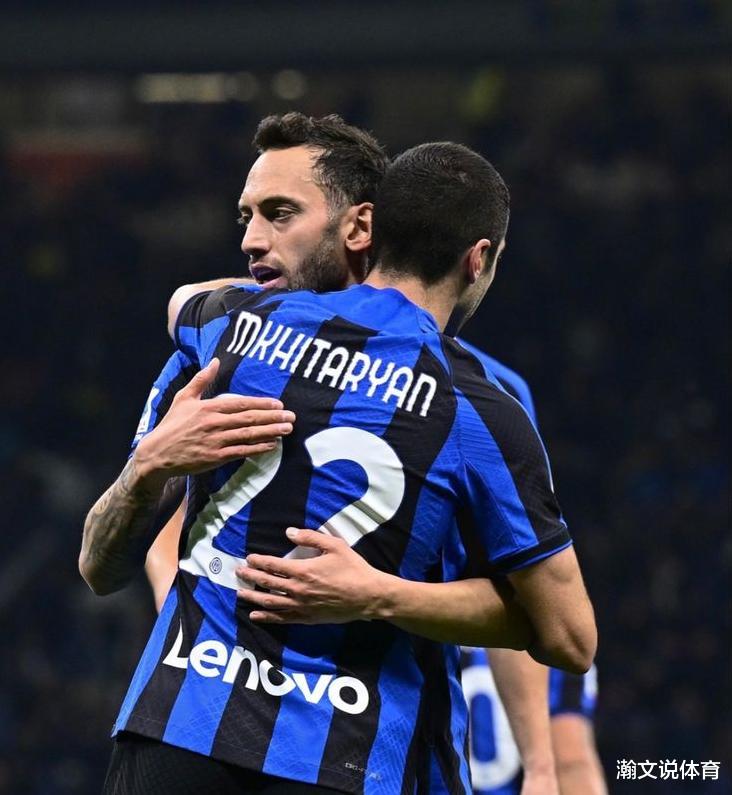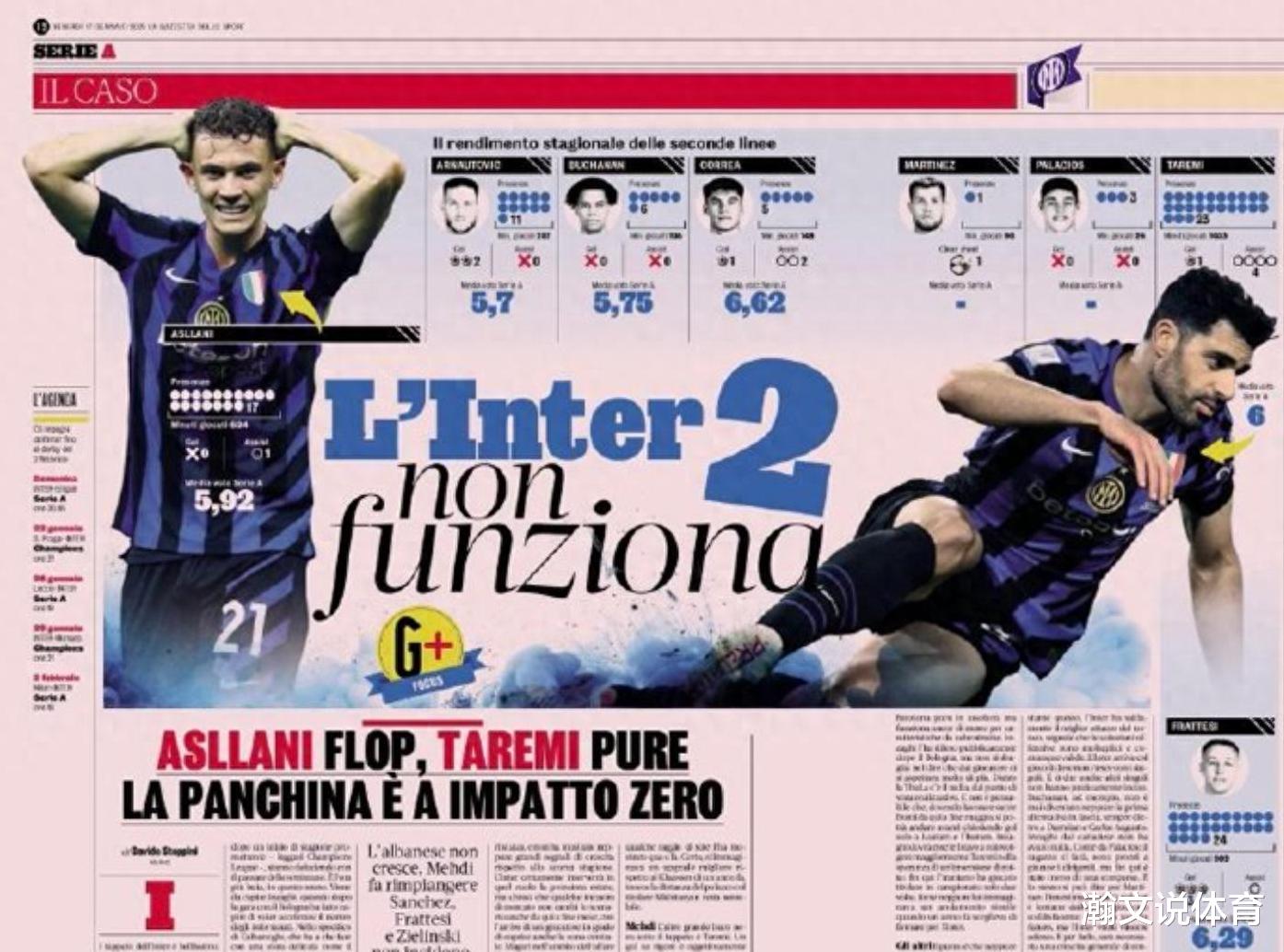The substitute players of Inter Milan have been a source of frustration for many fans recently, with their lackluster performances on the field drawing significant attention and discussion. Despite the team's seemingly good overall performance this season, the substitutes have failed to step up when key starters were injured, leading to disappointment among supporters.

Their underwhelming displays have been met with criticism, and concerns are growing about whether Inter Milan can continue to pursue championship glory if this trend continues. The article highlights the poor performance of players like Aslani and Taremi, who were once highly regarded but have faltered in crucial matches, leaving fans disheartened.

According to statistics from "La Gazzetta dello Sport," the scoring efficiency of Inter Milan's substitutes has been below expectations in recent games, with their sudden drop in form causing helplessness. Fans argue that this is not just an issue of individual ability but also stems from the complexity of the tactical system, which hinders their integration into the team.

Inter Milan's tactical system is described as intricate and complex, posing a significant challenge for substitute players. Compared to the starters, substitutes often struggle with tactical understanding and execution. Technical analysts point out that such a complex system restricts players' space and freedom on the field, limiting their potential.

Coaches' adjustments and tactical switches during matches often put pressure on substitutes, who must hurriedly follow changes without seizing opportunities. This disparity makes it even harder for bench players to cope, resulting in frequent coordination errors and inadequate tactical execution.

The absence of key players undoubtedly has a profound impact on the substitutes' performance. Many Inter Milan fans have taken to social media platforms to call for a more reasonable team setup, urging against isolating certain players. When critical players like Lautaro Martinez and Barella are injured, the substitutes must take on greater responsibility.

However, the young players on the bench have yet to develop a strong rapport with the starters, making all tactical arrangements seem inadequate. Substitutes need protection and trust to adapt to these changes, but Inter Milan, under high pressure, finds it challenging to provide them with room to grow.

Regarding rotation strategies, skillful rotations can help maintain team vitality, but improper implementation could lead to greater difficulties. It is crucial to manage player playing time reasonably during periods of multiple consecutive matches.

If coaches make too frequent lineup changes, the confidence and sense of cohesion among substitutes may be weakened. Perhaps the team should consider reusing players like Frattesi, who has shown promise in limited appearances.
A combination of proper adjustments and a stable rotation mechanism is necessary to navigate the tough schedule ahead. The reasons behind Inter Milan's substitute players' subpar performances are not due to a single factor but a combination of tactical complexity, the absence of key players, and improper rotation strategies.
In the future, the team must prioritize the development of substitutes and tactical adjustments when facing strong opponents, improving their adaptability through reasonable configurations and tactical education to enhance overall strength. As many fans hope, Inter Milan's goal should not stop here; the real challenge lies in demonstrating unity and coordination in future matches.
We hope Inter Milan can find a solution and reignite their championship dreams.